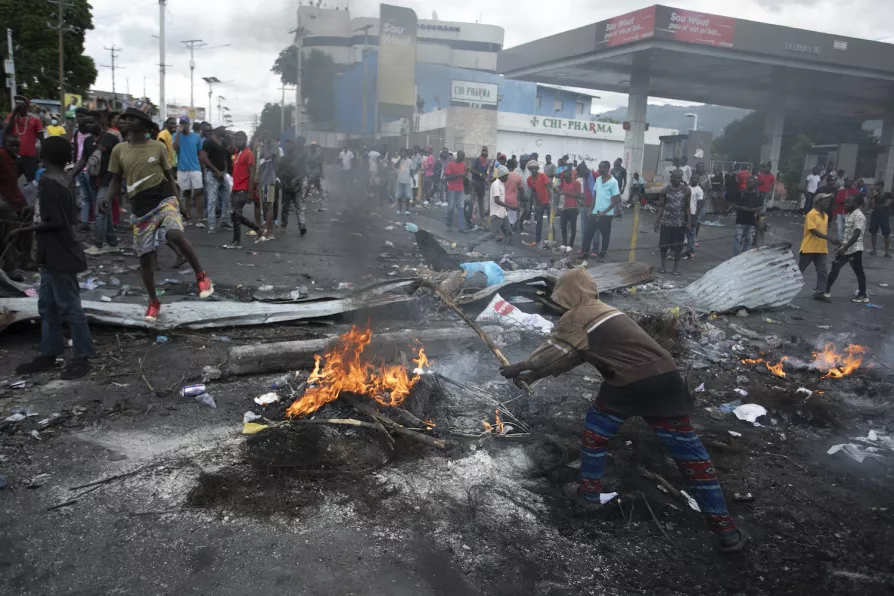As tens of thousands return to the streets for the first national Palestine march of 2026, this movement refuses to be sidelined or silenced, says PETER LEARY

 Protesters in Port-au-Prince, Haiti, Monday, Sept. 19, 2022.
Protesters in Port-au-Prince, Haiti, Monday, Sept. 19, 2022.
A CYCLE of protests began in Haiti in July 2018, and — despite the pandemic — has carried on since then.
The core reason for the protest in 2018 was that in March of that year the government of Venezuela — due to the illegal sanctions imposed by the US — could no longer ship discounted oil to Haiti through the Petrocaribe scheme. Fuel prices soared by up to 50 per cent.
On August 14 2018, film-maker Gilbert Mirambeau Jnr tweeted a photograph of himself blindfolded and holding a sign that read: “Where did the Petrocaribe money go?”

While Trump threatens to send Haitian gang leaders to El Salvador's terror prison, DANNY SHAW reveals how these paramilitary groups are merely symptoms of US-backed neocolonial rule — the real terrorists are the CIA and international actors arming desperate youth to traumatise an unarmed population













